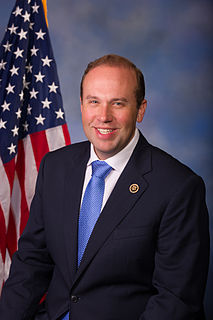A Quote by Dick Durbin
There is no question that the federal government sometimes overdoes it in issuing rules and regulations.
Related Quotes
Reagan cut through irrational federal regulations to allow children to live with their parents, where they could receive care that would cost the taxpayer one-sixth as much as institutional care. By contrast, Obamacare has added thousands of pages of bureaucratic regulations and will cost the federal government untold billions.
I support the administrative rules promulgated by the Department of the Interior which permit a Native Hawaiian government to establish a relationship with the U.S. government. If Native Hawaiians form a government consistent with those rules and seek federal recognition, I would likely support the request.
Not surprisingly, the federal judiciary nearly always rules in favor of the federal government. Judicial review, contrary to the assurances of its advocates, has hardly restrained Congress at all. Instead it has progressively stripped the states of their traditional powers, while allowing federal power to grow unchecked.
The proposed constitution, therefore, even when tested by the rules laid down by its antagonists, is, in strictness, neither a national nor a federal constitution; but a composition of both. In its foundation it is federal, not national; in the sources from which the ordinary powers of the government are drawn, it is partly federal, and partly national; in the operation of these powers, it is national, not federal; in the extent of them again, it is federal, not national; and finally, in the authoritative mode of introducing amendments, it is neither wholly federal, nor wholly national.
We have reached a moment in our history where we think that every problem in America has to have a federal government solution. Every problem in America does not have a federal government solution. In fact, most problems in America do not have a federal government solution and many of them are created by the federal government to begin with.
The RFA requires federal agencies to assess the economic impact of their regulations on small firms, and if significant, consider less burdensome alternatives. Federal agencies sometimes fail to comply at all, or simply 'check the box,' fulfilling the letter of the law, while missing the purpose of the law entirely.
































